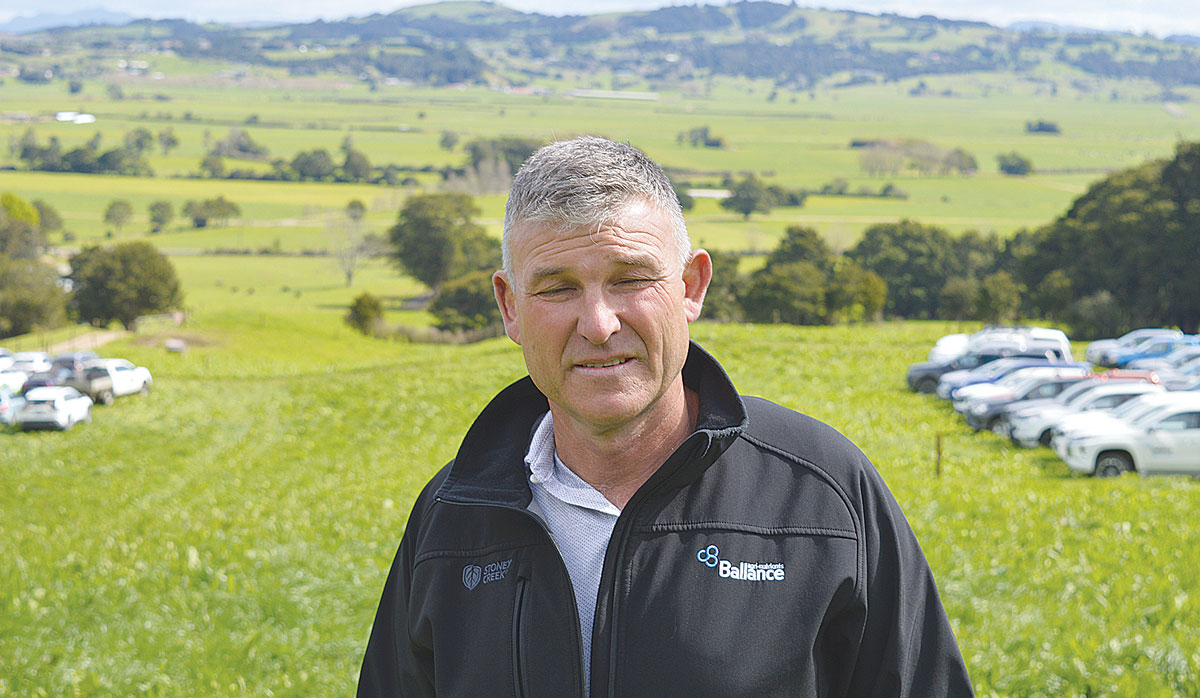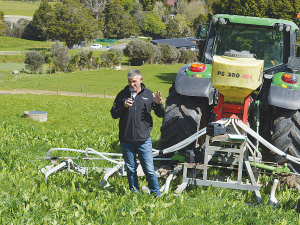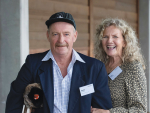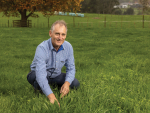Northland farmers Geoff and Jo Crawford have a simple mantra: put as much milk in the vat in the best environmental way possible.
Dairy farmers for the past 30 years, the Crawfords have strived to balance profit with the environment.
As the Northland supreme winners of the Ballance Farm Environment Awards, the Crawfords hosted a field day at their Crane Road farm in Hikurangi this month. About 150 people turned up to hear their recipe for success.
Geoff Crawford, who started as a contractor, bought his first farm aged 22. Today the couple own three dairy farms milking a total of 1,400 cows.
They calve 60% of the calves in autumn and 40% in spring.
Almost all calves are raised and finished on the beef unit they own, alongside trading cattle that are purchases and finished.
For feed, a 50ha maize block supports the dairy farms; chicory, plantain and fescue are some of the feed grown across the dairy platform.
Jo Crawford told guests at the field day that the business means everything to them.
"It's our dream and the culmination of our life's work," she says.
She says they brought the Crane Road property 29 years ago to base their contracting business near the town.
"And over the 29 years, we have become passionate about our environment," she says. "We've done a lot of planting [along] drains and we have fenced off all bushes on the property.
"It's all part of our desire to have a sustainable environment."
Jo says it has been an amazing journey.
 |
|---|
|
Geoff Crawford bought his first farm at 22.
|
They have taken the lessons from the Crane Road property to the other farms.
"Things like not planting flax too close to the fences and having electrical shorts," she adds.
The Crawfords have also gifted a mountain on the property to the Queen Elizabeth II Trust.
Jo says they have heard that the mountain is home to a rare centipede. "Not that we have seen it but it gives us a good feeling."
Two years ago, the Crawfords started pest control with the hope of increasing bird life and introducing kiwis to the property one day.
"We're definitely seeing more bird life on our property than what we had two years ago."
Geoff Crawford told guests that farming in the flood-prone Hikurangi region was a challenge.
Last month the area was under water again after 200mm of rain
"We had a wet winter and we saw a lot of water come and go," he says. "But we get over it, it's just resilience, having a plan and moving on."
He says the affected paddocks were already showing signs of life, with chicory and buttercup shoots visible.
"I will come in with chemicals in the coming weeks and take out the grass and weeds. Then I will sow with my chain harrow, fence them off and keepthem in production."
Judges described the Crawfords' business as "a spectacular example of balancing profit with the environment".
"Their motivation to enter the awards was to demonstrate it is possible to run a profitable corporate size operation, while being conscious of the environment."
The Crawfords says they entered the BFEA as a way of demonstrating how large-scale dairy farms can be both environmentally and financially sustainable.












